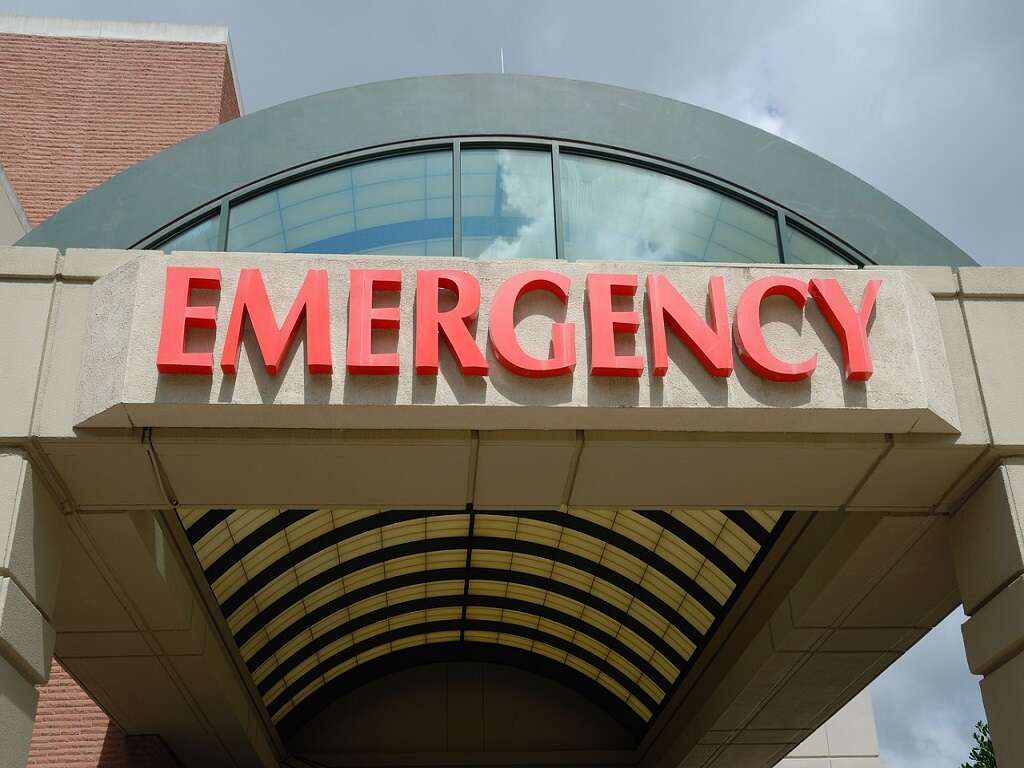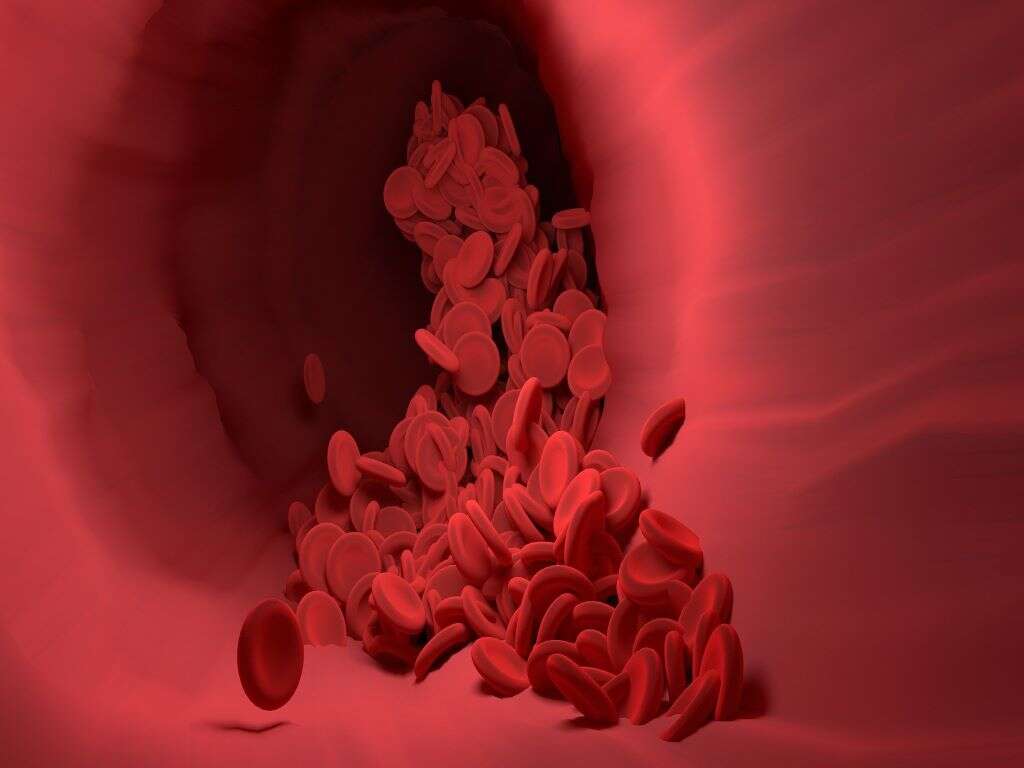10 Clogged Arteries Symptoms
 Article Sources
Article Sources
- 1. 'Angina (Chest Pain).' Www.heart.org, www.heart.org/en/health-topics/heart-attack/angina-chest-pain
- 2. Joy, Kevin. 'Why Does Pulmonary Hypertension Cause Shortness of Breath?' Health & Wellness Topics, Health Tips & Disease Prevention, 1 Aug. 2017, healthblog.uofmhealth.org/heart-health/why-does-pulmonary-hypertension-cause-shortness-of-breath
- 3. 'Heart Arrhythmia - Symptoms and Causes.' Mayo Clinic, 19 Nov. 2019, www.mayoclinic.org/diseases-conditions/heart-arrhythmia/symptoms-causes/syc-20350668
- 4. 'Three Symptoms of Coronary Artery Disease.' Bradenton Cardiologist and Cardiology Center - Heart Specialists, 15 July 2019, www.cardiovascularsolutionsinstitute.com/three-symptoms-of-coronary-artery-disease/
- 5. UC Davis Health, Vascular Center. 'Intestinal Ischemic Syndrome | Vascular Center | UC Davis Health.' UC Davis Health | University of California, Davis, health.ucdavis.edu/vascular/diseases/intestinal/ischemic/syndromes.html
- 6. 'Coronary Artery Disease | Cdc.gov.' Centers for Disease Control and Prevention, 9 Dec. 2019, www.cdc.gov/heartdisease/coronary/ad.htm
- 7. 'Erectile Dysfunction: Find out How It's Linked to Heart Disease.' Mayo Clinic, 26 Aug. 2020, www.mayoclinic.org/diseases-conditions/erectile-dysfunction/in-depth/erectile-dysfunction/art-20045141
- 8. 'Coronary Artery Disease - Symptoms and Causes.' Mayo Clinic, 5 June 2020, www.mayoclinic.org/diseases-conditions/coronary-artery-disease/symptoms-causes/syc-20350613
- 9. 'Conditions That Increase Risk for Stroke.' Centers for Disease Control and Prevention, 31 Jan. 2020, www.cdc.gov/stroke/conditions.htm#
- 10. 'How Heart Health Impacts Wound Healing.' Franciscan Health, 30 Aug. 2018, www.franciscanhealth.org/community/blog/how-heart-health-impacts-wound-healing
Clogged arteries, also known as atherosclerosis, cause nearly 450,000 deaths per year in America alone. The condition results in almost a million stent replacement surgeries. Clogged arteries occur when plaque, which comprises calcium, fat, and other substances, accumulates in the blood and gets stuck to the walls of the arteries.
As plaque builds up, it can become increasingly difficult for oxygen-rich blood to reach the body's tissues and organs. In some cases, the blood is stopped altogether, which may result in a heart attack or cardiac arrest. Lifestyle changes and medical interventions are commonly required to reverse the effects of clogged arteries.
Chest Pain
When the blood has difficulty making its way through the arteries due to plaque buildup, it can create pressure. This pressure can result in pain known as angina, and if it's not carefully managed, it may lead to a heart attack. Coronary artery disease and coronary microvascular disease may both cause angina.
Angina itself isn't a disease but a symptom of a problem in the arteries. There are also different types of angina, such as Prinzmetal's angina, microvascular angina, stable or unstable angina and variant angina. The risk of angina may increase with an unhealthy lifestyle, inactivity, smoking and diabetes.1‘Angina (Chest Pain).’ Www.heart.org, www.heart.org/en/health-topics/heart-attack/angina-chest-pain
Shortness of Breath
Shortness of breath may have a number of causes such as anemia or allergies. Research shows, however, that it's commonly linked to heart and lung problems.
It's important to know when to take shortness of breath seriously, and in the case of coronary artery disease, a person may experience shortness of breath that can seem like a lung problem. It typically occurs because the body can't transport oxygen-rich blood back to the heart, which can leave a person gasping for more air.2Joy, Kevin. ‘Why Does Pulmonary Hypertension Cause Shortness of Breath?’ Health & Wellness Topics, Health Tips & Disease Prevention, 1 Aug. 2017, healthblog.uofmhealth.org/heart-health/why-does-pulmonary-hypertension-cause-shortness-of-breath

Heart Palpitations
Heart palpitations are also referred to as arrhythmia and can occur when the heart is unable to process signals called electrical impulses. This can cause the heart to miss or skip a few beats, which can result in a fluttering sensation.
While arrhythmias can be harmless, they may also indicate serious conditions such as coronary artery disease. Other symptoms may include shortness of breath, dizziness, fainting or feeling fatigued and anxious. A person experiencing palpitations should seek medical attention to rule out serious conditions.3‘Heart Arrhythmia - Symptoms and Causes.’ Mayo Clinic, 19 Nov. 2019, www.mayoclinic.org/diseases-conditions/heart-arrhythmia/symptoms-causes/syc-20350668
Weakness and Fatigue
Atherosclerosis causes the arteries to narrow down, which can leave very little room for the blood to flow. This means the body needs to make a bigger effort to move the blood around the body.
This extra work can put pressure on the heart, and a lot of the body's energy may be used to protect the heart. This can leave a person feeling fatigued and weak, with little energy to do anything else.4‘Three Symptoms of Coronary Artery Disease.’ Bradenton Cardiologist and Cardiology Center - Heart Specialists, 15 July 2019, www.cardiovascularsolutionsinstitute.com/three-symptoms-of-coronary-artery-disease/

Nausea
Clogged arteries may also affect the arteries that lead to the stomach. This blockage can put strain on the gastrointestinal process, and the added pressure may cause nausea, abdominal pain and vomiting. Clogged arteries affecting the stomach are referred to as intestinal ischemic syndrome.
Symptoms of the syndrome may also include pain after eating and sudden weight loss. Risk factors can include advancing age, smoking, hypertension, genetics, diabetes and gender, as women are more affected.5UC Davis Health, Vascular Center. ‘Intestinal Ischemic Syndrome | Vascular Center | UC Davis Health.’ UC Davis Health | University of California, Davis, health.ucdavis.edu/vascular/diseases/intestinal/ischemic/syndromes.html
Sweating
Sweating during hot weather or an activity that requires some exertion is normal. However, when sweating takes place during ordinary tasks in moderate weather, it may be related to clogged arteries.
A cold sweat in these conditions may be a warning sign that the body is working hard internally. It's important to seek medical attention immediately, as cold sweats may also indicate a heart attack. Other symptoms can include pain in the shoulders, arms or chest, shortness of breath and weakness.6‘Coronary Artery Disease | Cdc.gov.’ Centers for Disease Control and Prevention, 9 Dec. 2019, www.cdc.gov/heartdisease/coronary/ad.htm

Erectile Dysfunction
Erectile dysfunction has long been regarded as a symptom of heart disease. This was because it was believed that arterial blockages were responsible for erectile dysfunction. However, studies now indicate that it may be caused by the dysfunction of the inner lining of the blood vessels and smooth muscle.
Men who experience erectile dysfunction and have no obvious cause should seek medical attention. While erectile dysfunction doesn't always indicate heart problems, it's important to be screened for clogged arteries and other coronary issues.7‘Erectile Dysfunction: Find out How It’s Linked to Heart Disease.’ Mayo Clinic, 26 Aug. 2020, www.mayoclinic.org/diseases-conditions/erectile-dysfunction/in-depth/erectile-dysfunction/art-20045141
Heart Attack
One of the more serious symptoms of clogged arteries is a heart attack. While mild heart attacks may be corrected through surgical procedures, more extensive ones can lead to death.
Those experiencing a heart attack have described it as crushing pressure and severe chest pain. This may be combined with sweating and weakness. A person may also experience pain in the arms and shoulders. However, it's possible for a heart attack to occur without any obvious symptoms.8‘Coronary Artery Disease - Symptoms and Causes.’ Mayo Clinic, 5 June 2020, www.mayoclinic.org/diseases-conditions/coronary-artery-disease/symptoms-causes/syc-20350613

Stroke
When coronary artery disease causes the arteries to narrow due to plaque buildup, it can be harder for the body to get oxygen-rich blood to the brain. The extra pressure this puts on blood vessels may lead to a stroke.
A mild stroke may leave a person with few aftereffects and can commonly be managed with self-care and changes in lifestyle. However, a more severe stroke may need constant medical intervention such as medication management or surgery.9‘Conditions That Increase Risk for Stroke.’ Centers for Disease Control and Prevention, 31 Jan. 2020, www.cdc.gov/stroke/conditions.htm#
Poor Wound Healing
Coronary artery disease limits the amount of blood flow to the heart. It can also lead to other conditions such as peripheral arterial disease. With this condition, oxygen-rich blood isn't reaching cells throughout the body.
This may mean the cells no longer get the nutrients they need, which may result in slower wound healing. To prevent this, medical professionals recommend maintaining a healthy lifestyle, managing stress and consulting a doctor for regular screenings.10‘How Heart Health Impacts Wound Healing.’ Franciscan Health, 30 Aug. 2018, www.franciscanhealth.org/community/blog/how-heart-health-impacts-wound-healing










